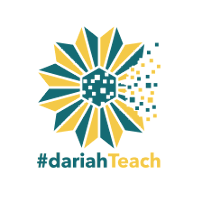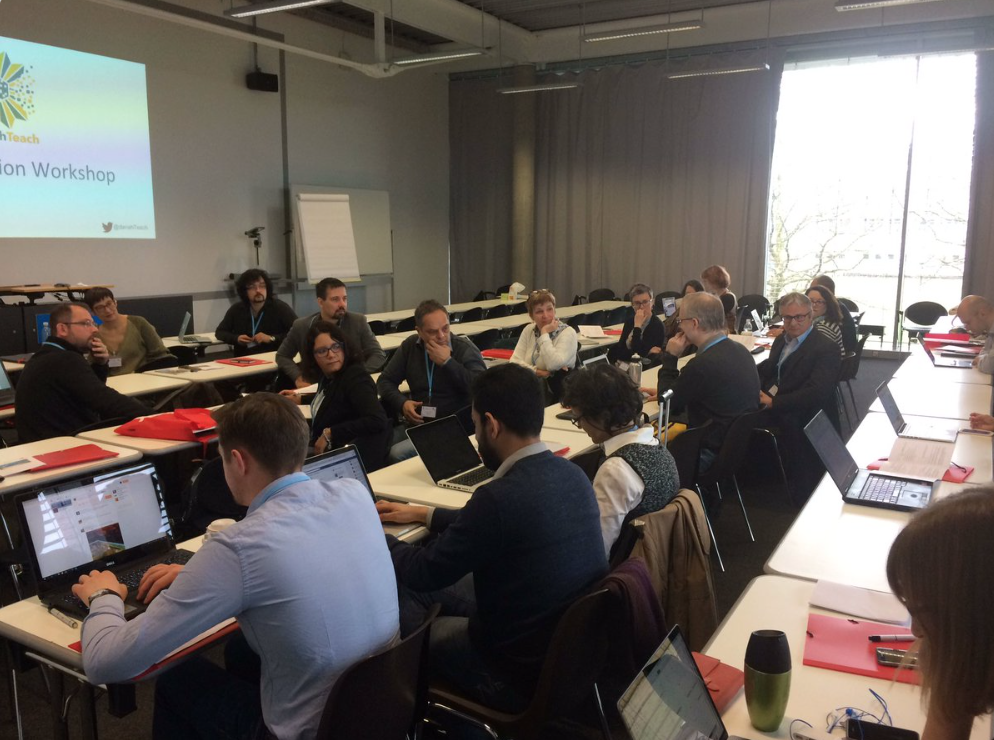Funded by a DARIAH Public Humanities grant; partners institutions:
Aarhus University, Athena Digital Curation Center, Swiss Institute of Bioinformatics, University of Lausanne and University of Teacher Education State of Vaud, on behalf of the VCC2 Working Group «Teaching and Education» and the #dariahTeach Consortium
Report : Claire Clivaz, Switzerland
Slides presentations are all available here.
General project description
This workshop explored how new pedagogical aspects of digital enhanced learning can be driven by communities of enablers and stakeholders, while also being embedded in education frameworks. Its goal was to expand the knowledge and practices developed within DH teaching communities into a broad-based discussion, while exploring partnerships with European e-learning organisations and infrastructures such as CLARIN. This event has provided for collaboration with experts from Education Science on the formation of multistakeholders communities of enablers and trainers, with the goal of bringing to the agenda the ‘why’ and ‘how’ of digitally enhanced learning, with OER and MOOCs as a public good. #dariahTeach is a ground-breaking project that has fostered exchanges on many levels focusing on of pedagogical challenges in Higher Education institutions within a networked digital environment.
The core of the event was a 1.5 day workshop organized on 22-23 March in Lausanne, in conjunction with the final conference of the Erasmus+ #dariahTeach strategic partnership (23-24 March). Thanks to this synergy, the workshop was widely and intensively reported via Twitter, as well as reflected on the #dariahTeach website : dariah.eu/teach. Last but not least, just a few days after the event, all the lecture slides were posted on the project website.
Last but not least, two breakout sessions were organized during the workshop, allowing people to share ideas and knowledge about the future of open resources for third-level pedagogy in Europe. Important ideas such as hybridity in DH pedagogy or academic citizenship in DH were discussed. The workshop, as well as the conference that followed it, has demonstrated the importance for DH research to have events which bring together researchers from other fields in addition to more traditionally-focused DH conferences.
Detailed project description
The workshop received wide attention due to the open call for six bursaries for early academic career scholars, allowing them to come to Lausanne to present their research and to participate in the #dariahTeach conference (see details below). These bursaries have allowed a wide range of teaching-based DH methods to be showcased, including presentations on DH pedagogy, gender and geographical diversity, with papers given on teaching DH in India and Ethiopia.
Four keynote speakers were invited, building bridges with the approach taken by the #dariahTeach team. Representatives were also present from CLARIN, and a fifth keynote speaker, from CLARIN addressed the conference. The workshop was the first public presentation of the #dariahTeach platform by Susan Schreibman and Costas Papadopoulos (Maynooth University, IE). These exchanges were crucial in fostering the next phase of the project (teach.dariah.eu).
Perspectives for further cooperation
The #dariahTeach workshop on Open Education was a milestone in the #dariahTeach project. There is no doubt how important and beneficial the exchanges were to all those present, from the viewpoint of early career scholars as well as from senior colleagues. We will continue to benefit from the wider DARIAH network and infrastructure to further develop the platform and content.


